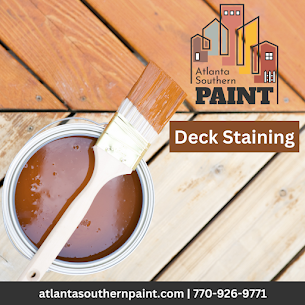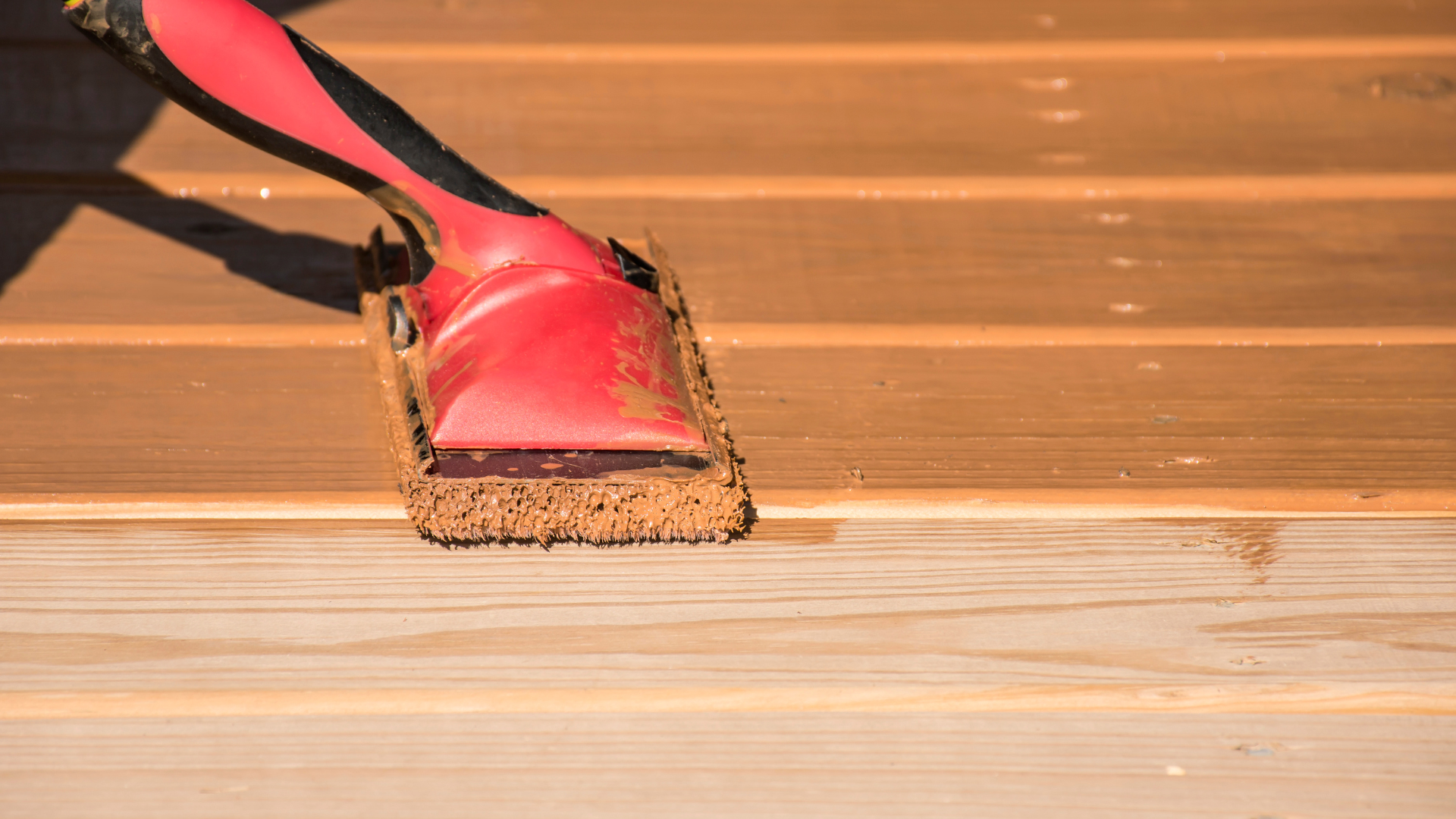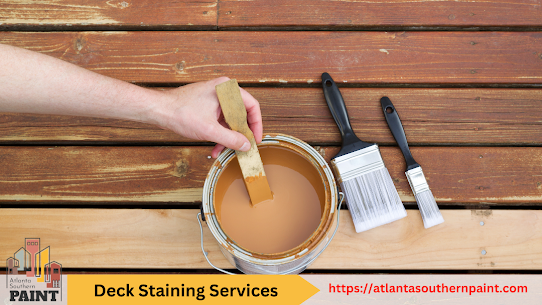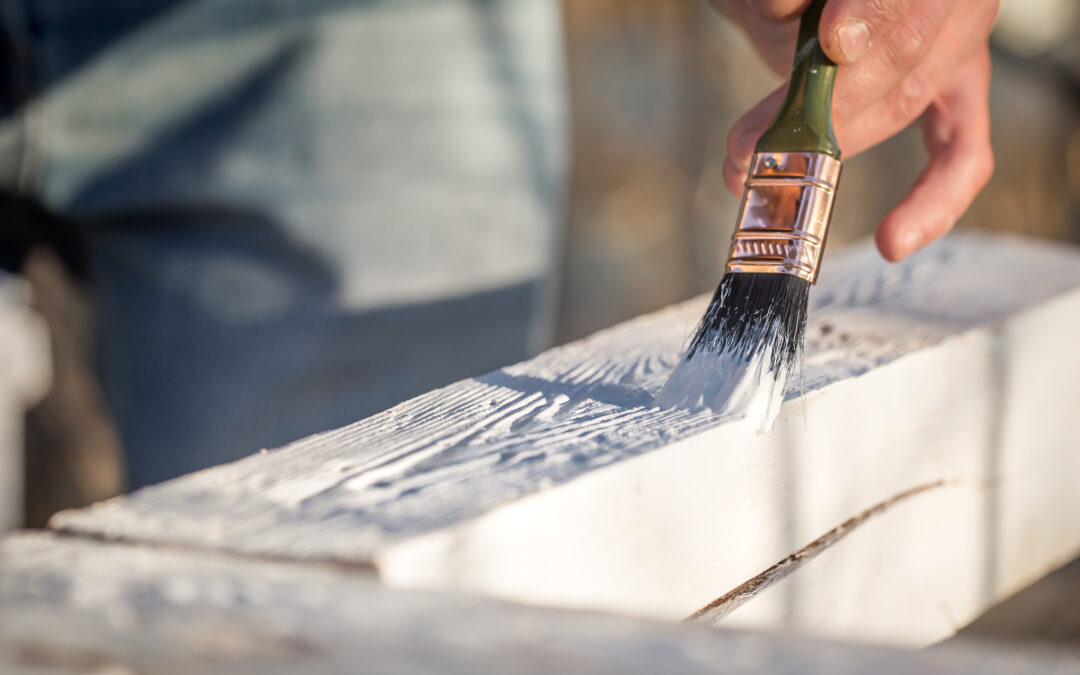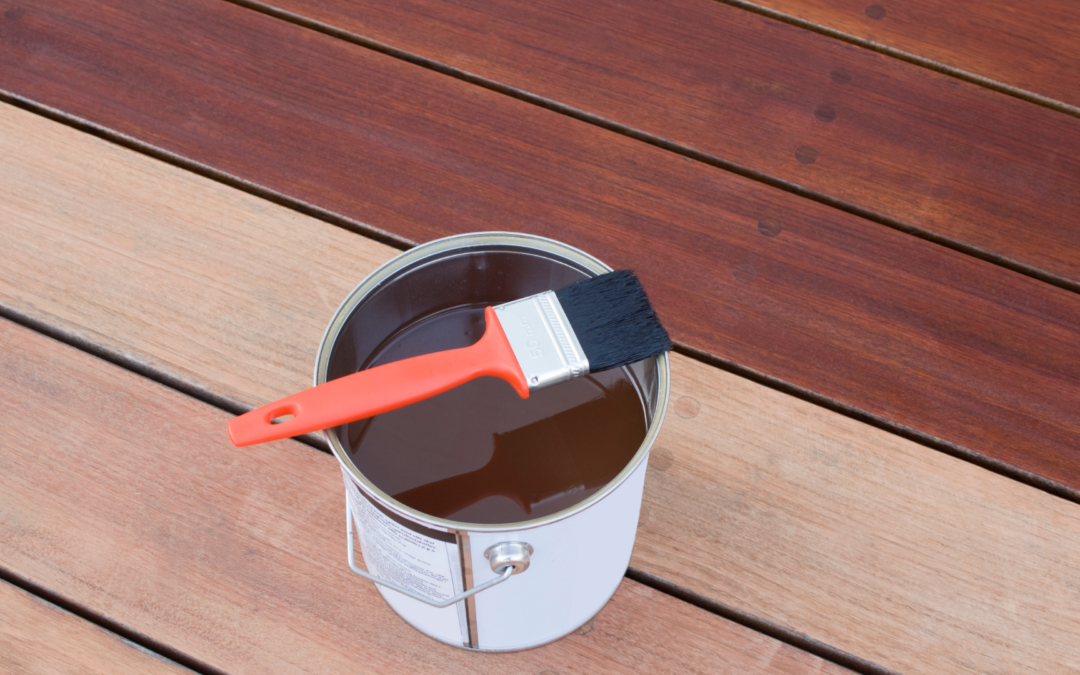
Deck Staining vs. Sealing: Which is Best for Atlanta Weather?
Nothing beats a well-maintained deck for outdoor entertainment or relaxation. However, Atlanta’s weather can be harsh on decking materials, especially during the summer months. Deck staining and sealing are two popular ways to protect decks from the elements and increase their lifespan. But which is the best option for Atlanta weather? In this blog post, we’ll dive into the basics of deck staining and sealing, factors to consider when making your choice, and best practices for both methods in Atlanta’s climate. We’ll also discuss whether your deck needs staining, sealing, or both to ensure it stays in top shape all year round.
Understanding Deck Staining and Sealing
To maintain the longevity and appearance of your pine deck in Georgia, it’s essential to stain and seal it. Staining enhances the natural wood grain while sealing protects against water damage, rot, and mold. Proper cleaning and preparation are necessary for both processes. Stain color options include transparent, semi-transparent, or solid, while sealer options include clear, toner, and pigmented sealers. Reputable brands like Thompson, TWP, and Cabot are popular choices for homeowners in Georgia. Latex-based products are recommended for their durability and ease of use.
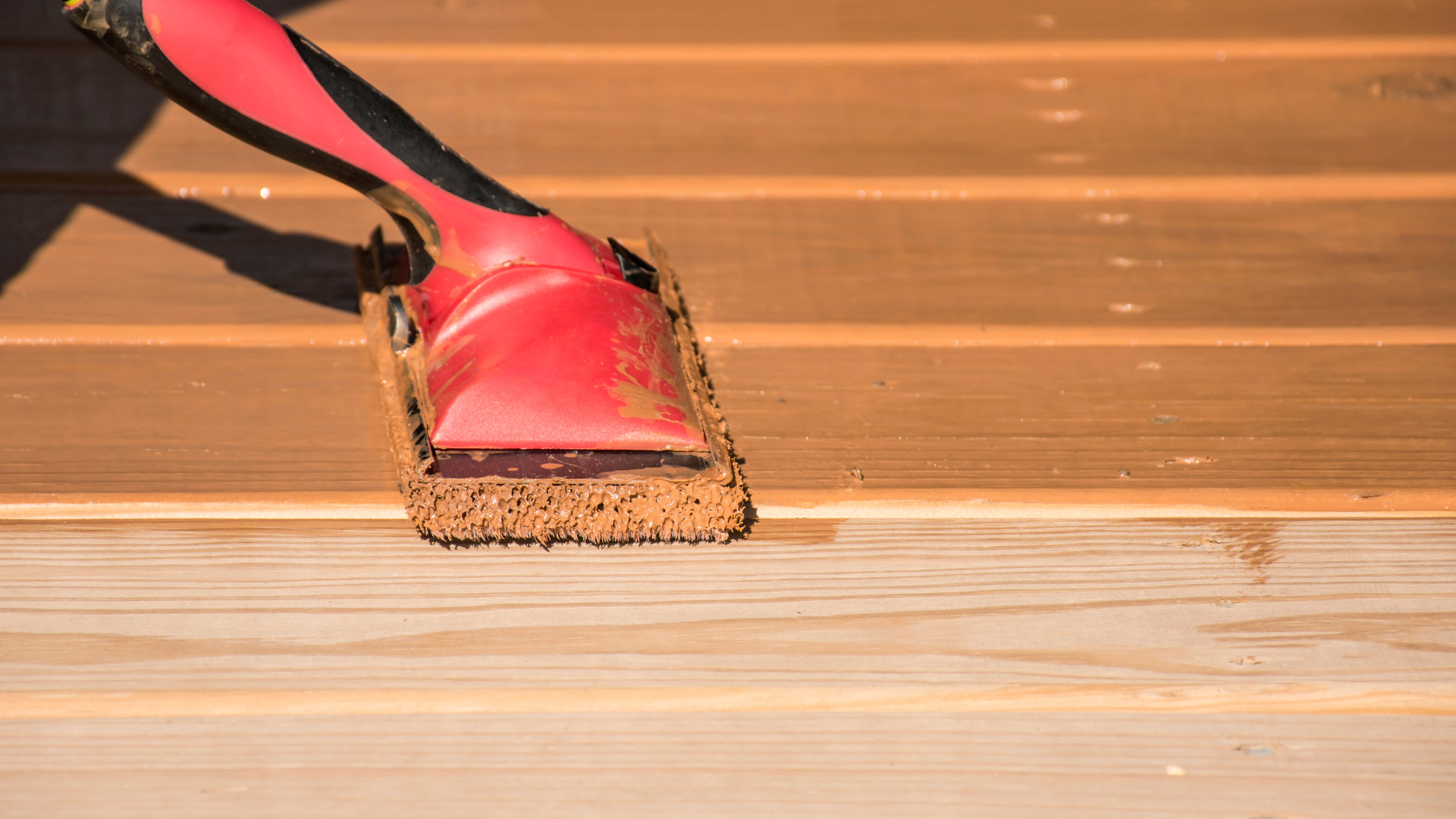
The Basics of Staining
Staining a deck is a great way to enhance the natural look of wood. By penetrating the wood surface, stain provides protection against harmful UV rays. Transparent stains are especially popular as they allow the wood grain to show through. It’s important to choose the right weather conditions for deck staining and follow the instructions provided by the stain manufacturer for optimal results. Homeowners in Atlanta, Georgia often choose popular stain brands like Thompson, TWP, or Cabot, which offer a range of options including latex and oil-based stains.
The Basics of Sealing
When it comes to protecting your pine deck from the elements and ensuring its longevity, deck sealing plays a crucial role. Sealing provides a barrier against moisture damage, mildew, and rot, keeping your deck in top-notch condition for years to come. Clear sealers are a popular choice as they allow the natural beauty of the wood grain to shine through. To ensure proper adhesion and effectiveness, it’s important to apply sealer to a clean and dry deck surface. Thin coats should be applied, with adequate drying time between each coat. Homeowners can choose between water-based or oil-based sealers, each offering their own set of benefits.
Factors to Consider: Staining vs Sealing
Atlanta’s weather has a significant impact on deck performance. Staining offers better protection against sun damage, while sealing creates a clear barrier against moisture. Staining requires more maintenance, including regular cleaning and reapplication, while sealing requires less frequent upkeep but may need periodic cleaning and reapplication over time. Georgia homeowners should consider these factors when choosing between staining and sealing their pine deck. Popular staining and sealing products in Atlanta include Thompson, TWP, Cabot, and latex.
Effect of Atlanta Weather on Decking Materials
Atlanta weather, with its sun, moisture, and inclement conditions, has a significant impact on deck surfaces. The direct sunlight can cause wood deck boards to fade, warp, or crack over time. Additionally, the high humidity in Atlanta can lead to moisture damage, including mold, mildew, and rot. To protect wood decks from weather-related damage, proper care is essential. Homeowners should consider staining or sealing their decks to provide a barrier against these elements. It may also be beneficial to choose weather-resistant wood, such as ipe, for deck construction in Atlanta.
Cost Considerations for Staining and Sealing
When comparing the cost of staining and sealing your deck, several factors affect the overall cost. These factors include the deck size, materials used, and labor involved. Staining is generally cheaper but requires more frequent maintenance. Sealing has a higher upfront cost but provides a clear, protective barrier. The choice of stain or sealer brand also impacts the overall cost. Consider long-term savings and deck longevity when comparing staining and sealing costs.
Expected Longevity of Staining and Sealing Solutions
The durability of deck staining and sealing solutions can vary based on several factors. For stains, the duration of protection is affected by wood type, weather conditions, foot traffic, and care. Transparent stain typically needs reapplication every 1-2 years for optimal protection, while semi-transparent stain can last 2-4 years before needing to be reapplied. Solid stain provides the longest-lasting protection, with a lifespan of 5-7 years before reapplication. On the other hand, sealers’ longevity depends on weather, cleaning, and surface preparation, usually lasting 1-3 years.
Choosing Between Staining and Sealing for Atlanta Decks
When choosing between staining and sealing for your deck in Atlanta, consider the weather and usage. Staining offers sun protection, enhances wood grain, and provides customizable colors. Sealing is ideal for clear protection, preventing moisture damage, and minimizing maintenance. Consult with deck staining and sealing professionals in Georgia for personalized recommendations. Make an informed choice based on your needs and preferences.

Pros and Cons of Staining
Staining a pine deck in Georgia has pros and cons. On the positive side, it enhances the wood grain, offers custom colors, provides sun protection, and gives a natural look. Staining also offers water resistance like TWP and Cabot options. However, there are drawbacks. Staining requires regular cleaning and reapplication, and its longevity depends on the weather. It may also hide wood imperfections. Despite these cons, many homeowners choose staining to showcase beauty, protection, and longevity. Choose stain colors that complement your exterior design and landscape.
Pros and Cons of Sealing
Sealing offers clear protection and helps prevent moisture damage, making it a popular choice among homeowners. It requires low maintenance and provides a natural look to the deck. However, there are some cons to consider as well. Sealing has limited color options and can lead to surface peeling over time. Additionally, it may not provide full sun protection. Despite these drawbacks, sealing creates a clear, protective barrier that extends the lifespan of the deck with minimal upkeep. Choose a clear sealer for a natural wood look or a pigmented sealer for added color variation. Overall, sealing is best for deck owners who prioritize moisture protection and easy maintenance.
Best Practices for Deck Staining in Atlanta
Protect your pine deck in Atlanta’s sunny weather with a high-quality transparent stain like Thompson or TWP. Homeowners in Georgia should choose a stain that enhances the natural look and wood grain while providing sun protection. To ensure proper absorption and drying, apply the stain in full sun. Regularly clean and power wash your deck surface to remove dirt and debris, preserving its beauty for years to come. Consider popular brands like Cabot with latex-based formulas for lasting results.
Preparing Your Deck for Staining
To prepare your pine deck for staining in Georgia, homeowners should follow these steps. First, thoroughly clean the deck surface to remove mold, mildew, and pollen. Next, repair any imperfections or flaws in the wood. Ensure that the deck is dry and free from moisture before staining. Sand the deck boards to smooth out rough areas or splinters. Finally, choose a deck stain with pigments that offer protection against UV rays, such as Thompson, TWP, or Cabot latex stains.
Choosing the Right Staining Product
When it comes to choosing the right staining product for your deck, there are a few factors to consider. Firstly, if you want enhanced protection against moisture damage, it is advisable to use a solid stain. Additionally, opting for darker colors can help hide imperfections on the deck surface. It’s important to choose a stain that is specifically formulated for exterior wood and compatible with the type of wood used for your deck. Reading reviews and recommendations can help you find the best stain for Atlanta weather.
Best Practices for Deck Sealing in Atlanta
To ensure optimal protection for your pine deck in Atlanta, it is important to follow the best practices for deck sealing. Start by applying a clear sealer to maintain the natural look of the wood while providing a barrier against moisture, mold, and rot. Consider sealing your deck floor, boards, and railings separately for enhanced protection. Apply the sealer during inclement weather to ensure proper adhesion and avoid sealing during high foot traffic periods to allow for sufficient drying time. By following these practices, homeowners in Georgia can protect their decks effectively.
Preparing Your Deck for Sealing
For a successful deck sealing process, follow these essential steps. Start by thoroughly cleaning the deck surface to remove mold, mildew, or fungus. Inspect and repair any peeling or flaking sealer. Ensure the deck is dry and free from moisture to prevent water damage. Consider sanding for a smooth surface. A power washer can effectively remove dirt, grime, and old sealer from the wood.
Choosing the Right Sealing Product
When choosing a deck sealer, consider factors like UV protection, ease of application, and long-lasting moisture protection. Look for a sealer with UV protection to safeguard against sun damage. Opt for a water-based sealer for easier application and cleanup. Choose a sealer designed for deck surfaces and offers long-lasting moisture protection. Read product labels and consult professionals to find the best sealer for your deck.
Does Your Deck Need Staining, Sealing, or Both?
Assess the condition of your deck to determine its needs. If you want to enhance the appearance, consider staining. For protection against moisture and rot, sealing is recommended. Evaluate Atlanta’s weather for the best time to proceed. Seek professional advice for personalized recommendations.
Conclusion
When it comes to protecting your deck from Atlanta’s harsh weather, both staining and sealing have advantages. Staining enhances the wood’s beauty and provides protection against UV rays and moisture. Sealing creates a barrier, preventing moisture penetration and minimizing damage. Consider factors like Atlanta weather, cost, and longevity when choosing between staining and sealing. Proper preparation and product selection are crucial for optimal results. If unsure, consult a professional for expert advice. Protect your deck investment by choosing the right maintenance approach for long-lasting enjoyment. Contact us today for more information on how we can help you maintain your deck’s beauty and durability.

